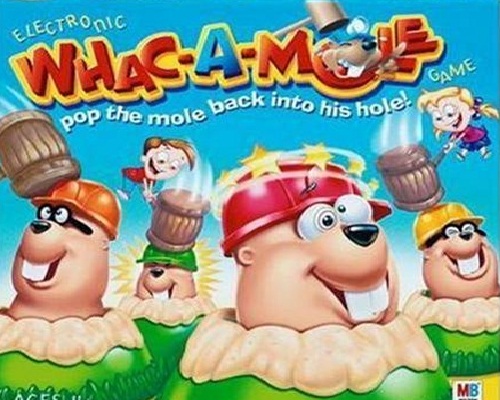Domain-seizing Bill worse than ACTA

US copyright reforms set to pull the rug from pirate-pushing websites leaves the Anti-Counterfeiting Trade Agreement (ACTA) for dead, according to a copyright lawyer.

A new anti-piracy Bill is like Whac-a-Mole, according to an IP lawyer.(Credit: Hasbro)
The bipartisan legislation, dubbed the Combating Online Infringement and Counterfeits Act (COICA), blocks the domain registrations of websites that host pirate content.
The Bill would essentially prevent users across the world from accessing websites banned under US law by forcing the nation's powerful domain registrars to withdraw the domain registrations they control.
The Act calls for the creation of two blacklists: one established with domain names fed through the US courts and the other maintained by the nation's Attorney-General's Office in the Department of Justice.
Copyright holders will appeal to courts to have domains added to the first blacklist for subsequent mandatory blocking by internet service providers.
The latter blacklist contains domain registrations that may be voluntarily blocked.
Its co-founder, Democrat Senator Patrick Leahy, said the Act will protect US jobs and investments, and dubbed its progress a "bipartisan priority".
"The legislation will give the Department of Justice tools to track and shut down websites devoted to providing access to unauthorised downloads, streaming or sale of copyrighted content and counterfeit goods," according to a statement by Leahy's office.
The Act comes as the shadowy ACTA nears international consensus, a move that will tighten copyright enforcement controls across the major economic nations.
Lowndes Jordan ICT lawyer Rick Shera claimed the Act is "far worse" than the ACTA and likened it to Australia's proposed mandatory internet filter, "writ large".
"It seems a dramatic and draconian way to deal with alleged infringement," Shera said.
"I have never seen anything like it... It is the same sort of debate as the clean-feed filter because it would enable anyone to come forward with an allegation and convince the authorities that a site should be blacklisted virtually for anything.
"But the users they targeted are technically adept and will find it relatively easy to set up new domains. It will be like 'Whac-a-Mole'."
Unlike the latest rendition of the ACTA, the Bill places internet providers at risk of secondary liability, through which they may be sued for providing subscribers with access to websites listed under the voluntary blacklist.
As a result, Shera expects most US internet providers to comply with the voluntary blacklist.
The Act was discussed during a US Judiciary Committee last week, after its introduction earlier this month.
Leahy co-authored the Patent Reform Act, which is set to introduce the first major reforms to the US patent system in more than 55 years.